-
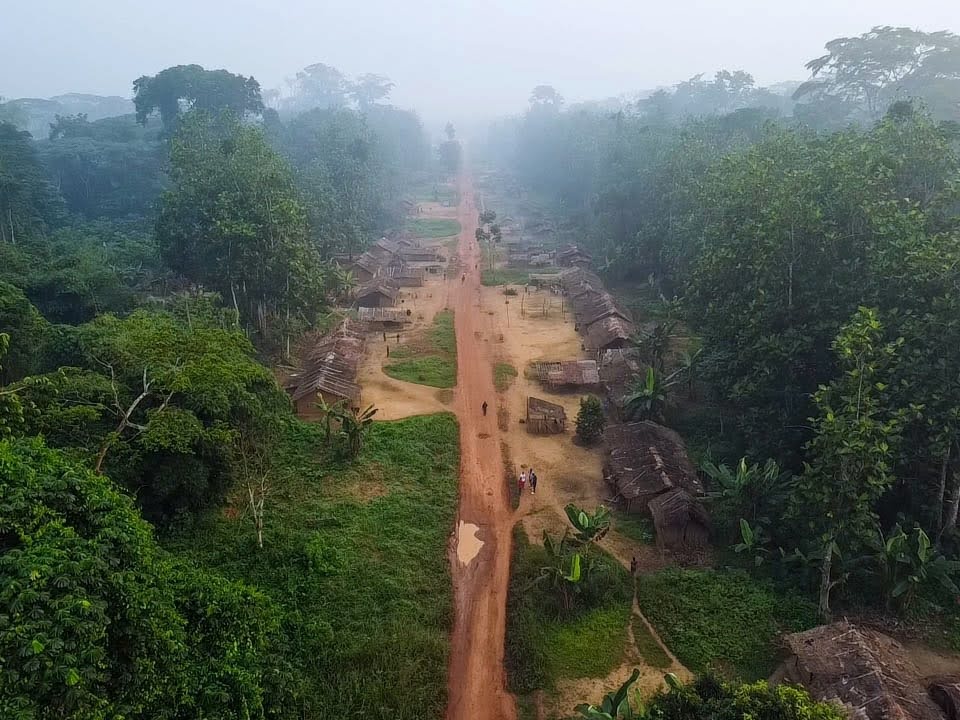
Travel diary from the heart of the Congo Basin: voices and hopes of indigenous peoples
In August 2025, Greenpeace Africa led an exceptional expedition to the heart of the Congo Basin, to the villages of Lokolama and Penzélé, as well as to Mbandaka, in Equateur Province.
Upon returning from the forest expedition, as night fell on the village of Lokolama, a special atmosphere settled around a campfire. More than 60 indigenous youth gathered with Greenpeace Africa volunteers to share a unique moment of songs, dances, and ancestral stories.
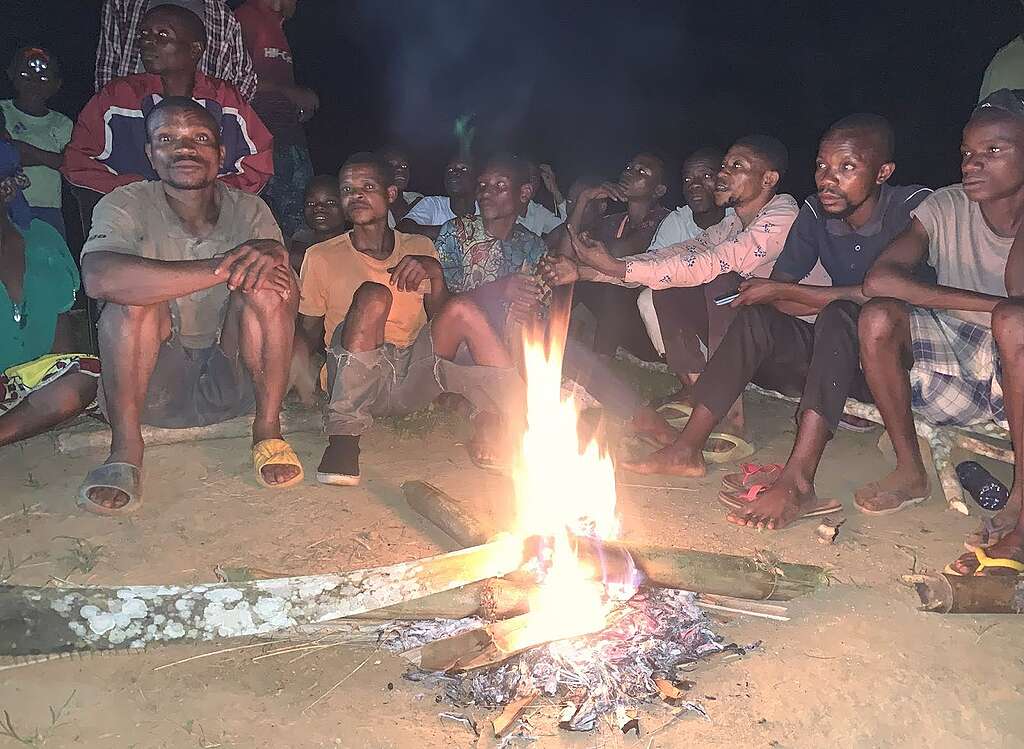
Fire as a witness to traditions
In indigenous culture, fire is not just a source of heat or light. It is a place of transmission, where elders share their knowledge with the younger generation. Around the crackling flames, stories are told, laughter rings out, and wisdom takes root.
This vigil allowed volunteers to discover the spiritual and cultural world of the Lokolama people, where every tale and every song carries a message: respect the forest, protect life, honor the ancestors.
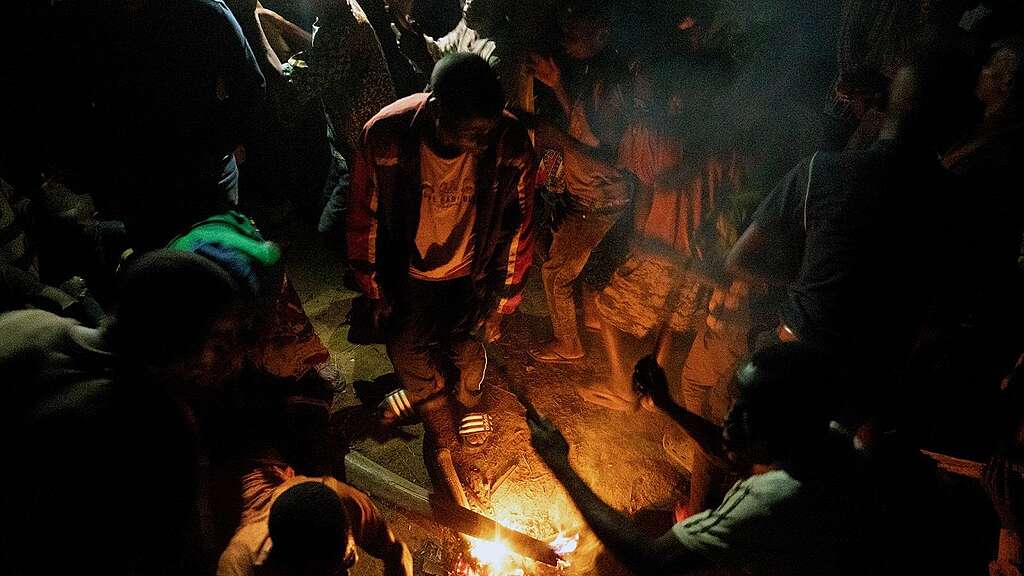
Stories that inspire resilience
The young people sang melodies inherited from their grandparents, recounted myths about the creation of forests, and danced to the beat of drums. These traditions, much more than folklore, are lessons in resilience and reminders of the importance of the inseparable link between humans and nature.
“The forest is not just our home. It is our memory, our school, and our future,” said one young participant, staring into the flames.
Strengthening ties between generations
This moment of exchange was an opportunity to bring indigenous youth and Greenpeace Africa volunteers closer together. Together, they shared an emotionally rich experience that strengthened trust and solidarity.
In a world where modernity tends to erase traditions, these moments remind us that culture is also a weapon of protection. Preserving stories and songs also means preserving the forest.
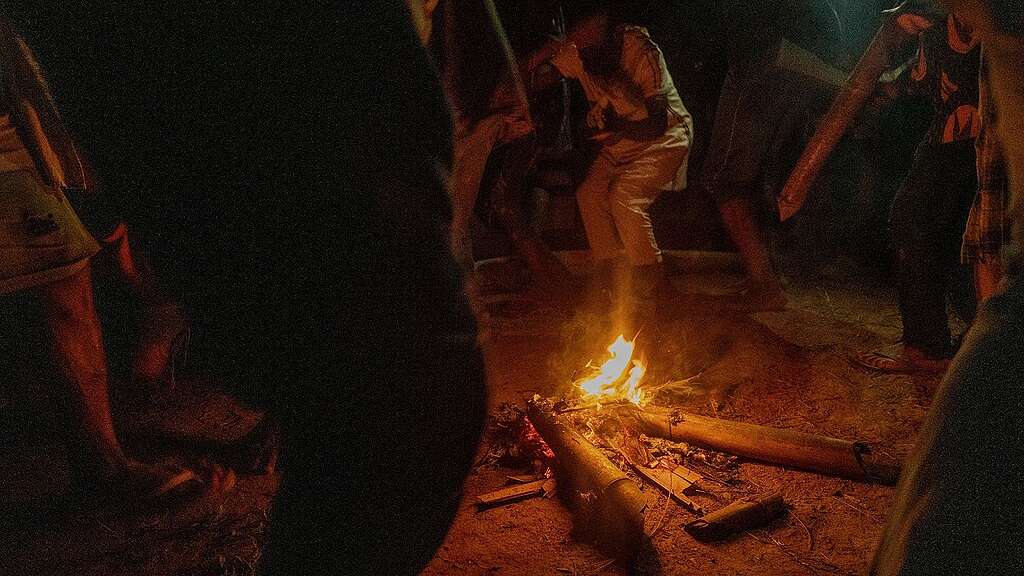
A living culture for a sustainable future
Through this vigil, Lokolama showed that cultural transmission is key to preparing for the future. For young people, nourished by these stories and bearers of this identity, are the true heirs of the forest and agents of change.
-
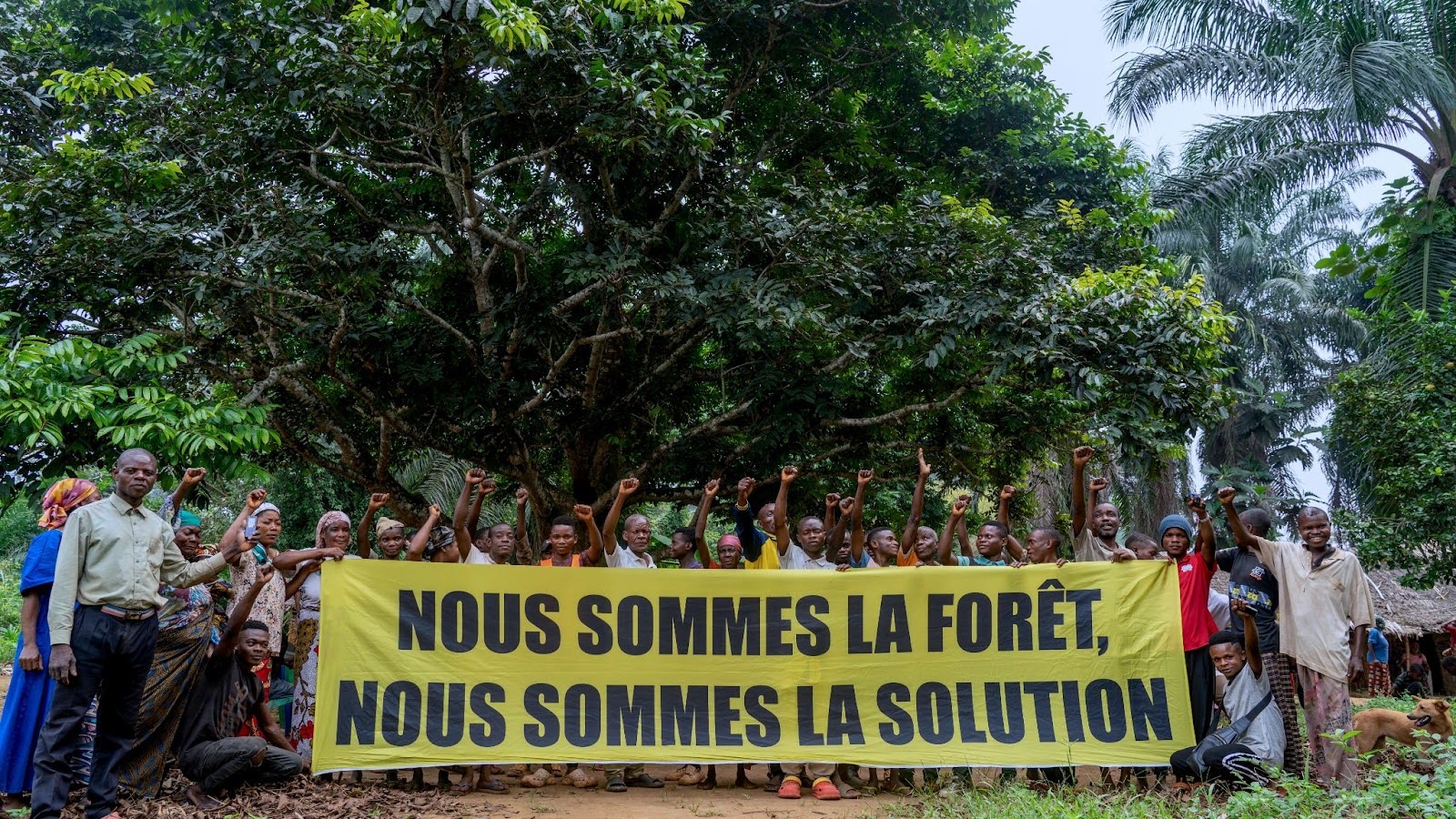
Lokolama: At the heart of indigenous forestry solutions in the Congo Basin
Earlier this month I set off for the village of Lokolama with the Greenpeace Africa team, in to immerse ourselves in the living heritage of Indigenous Peoples.
-
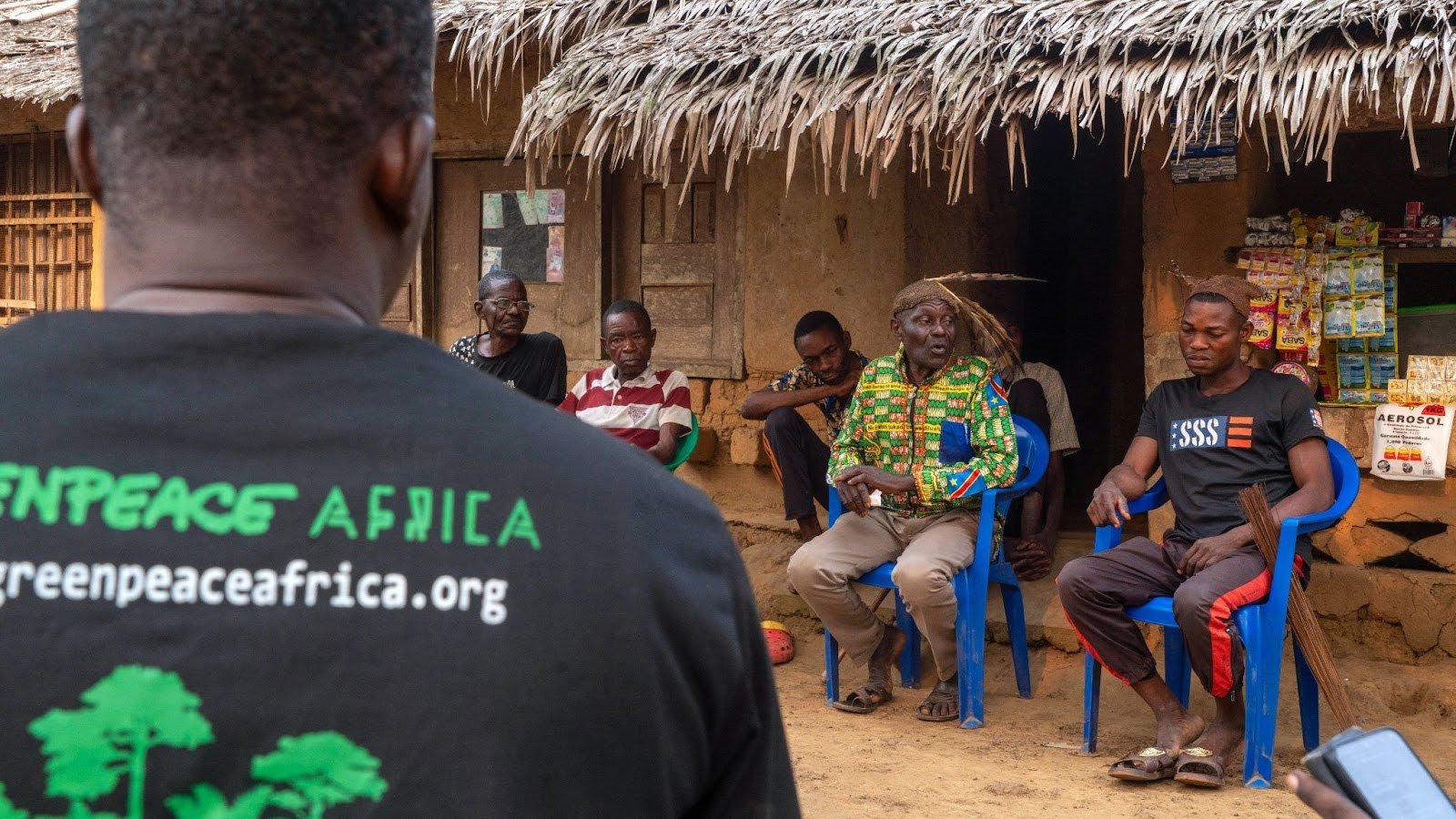
From conflict to cooperation: when Lokolama and Penzélé chart the future of their forests together
In the heart of Ecuador province, the villages of Lokolama and Penzélé share the same mission: to protect the forests that feed their families and are home to exceptional biodiversity.
-
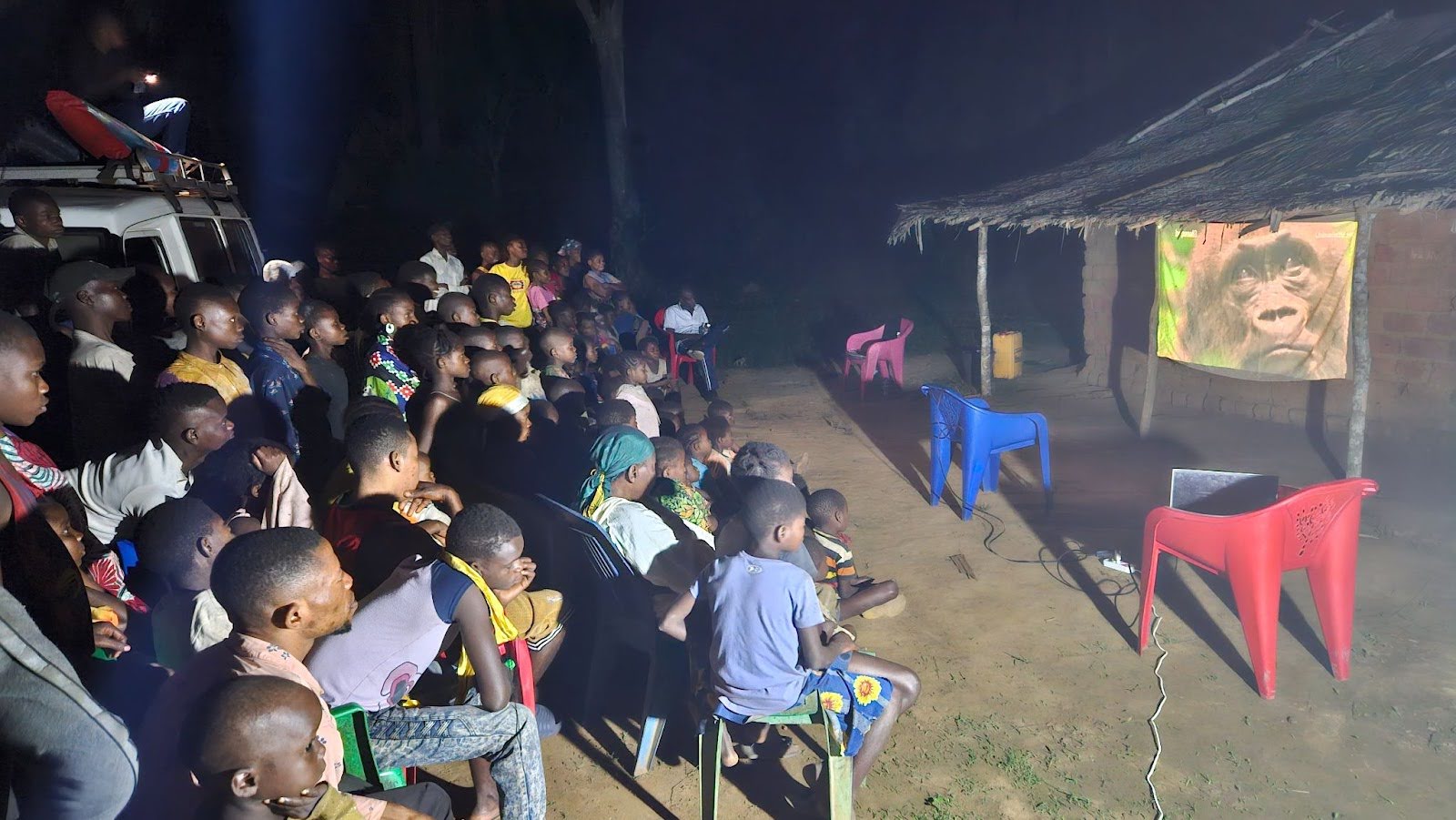
A forest on the big screen: when images reignite the flame of conservation in Lokolama
More than 100 community members gathered to watch a special screening dedicated to the Congo Basin forest.
